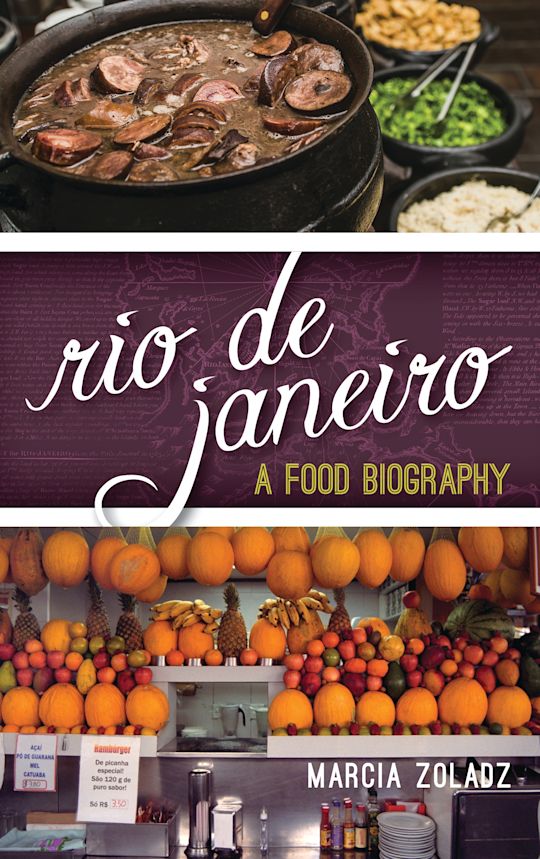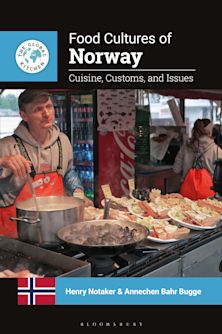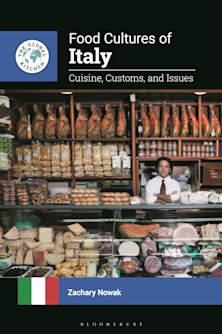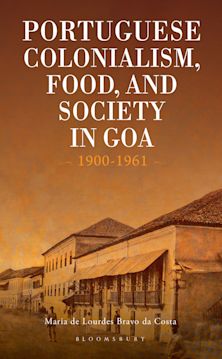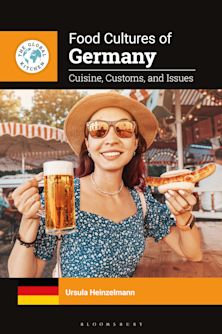- Home
- ACADEMIC
- Food
- Food History
- Rio de Janeiro
This product is usually dispatched within 1 week
- Delivery and returns info
-
Free US delivery on orders $35 or over
You must sign in to add this item to your wishlist. Please sign in or create an account
Description
From fish soup to caipirinha, the culinary traditions of Rio de Janeiro come alive in this rich and sumptuous tour of its people and the foods they cook, eat, love, and enjoy.
In the last four centuries of its history, the inhabitants of Rio de Janeiro created a lifestyle that is unique and has been much admired since the very first travelers published their impressions in the sixteenth century. Indeed, this international hot spot welcomes approximately 1.8 million tourists every year who come to the city to visit, to work, to study, and to eat.
It was and it is a place of cultural and artistic creativity, and it has largely kept concealed one of its most interesting cultural traits: its food. Rio de Janeiro: A Food Biography unveils the high quality and variety of Rio’s fresh produce, the special dishes served in parties or at home, and the very traditional ones inherited from the immigrants who made the culture of the city as varied as its food. Starting with a history of the city and its native plants and animals, Marcia Zoladz offers a rich and sumptuous tour of the culture, the people, and the foods they cook, dine on, love, and enjoy. From fish soup to caipirinha, the culinary traditions come alive through an exploration of the festivals, the people, the places, and the hot-spots that continue to draw people from around the world to this world-class destination.
Table of Contents
Chapter 1: The Material Resources: Land, Water, and Air
Chapter 2: Food In a Carioca Way – The First Inhabitants
Chapter 3: What Is The Food Legacy of Later Immigration?
Chapter 4: Markets and Retailing
Chapter 5: Restaurants And Eating Out In The City
Chapter 6: Historic Cookbooks, How to Follow The History of the Recipes
Product details
| Published | Sep 02 2016 |
|---|---|
| Format | Hardback |
| Edition | 1st |
| Extent | 146 |
| ISBN | 9781442252318 |
| Imprint | Rowman & Littlefield Publishers |
| Illustrations | 25 BW Photos |
| Dimensions | 9 x 7 inches |
| Series | Big City Food Biographies |
| Publisher | Bloomsbury Publishing |
About the contributors
Reviews
-
With all the current attention lavished on Rio de Janeiro due to its hosting the summer 2016 Olympic Games, foodies may wonder what the city has to offer them. Zoladz outlines the history of Rio’s foodways, noting the centuries of influence, from indigenous peoples through the arrival of the Portuguese. Although Portugal became the nation’s colonial overlord, other Europeans, such as the French, had a hand in Brazil’s cuisine. Cassava and other natives stayed central to Carioca cooking, and as city water supplies improved, other native fruits and vegetables poured into Rio’s markets. Eighteenth-century importation of African slaves to work the sugar cane fields brought diverse cooking styles and ingredients from hosts of regional African tribes and nations. In the last century, Eastern Europeans and Middle Easterners fleeing their countries’ upheavals added to the mix, and kibbeh, Lebanon’s national dish, has become a Rio commonplace within a cosmopolitan setting.
Booklist
-
Enhanced with the inclusion of four pages of Notes, a four page Bibliography, and an eight page Index, Rio de Janeiro: A Food Biography is an informed and informative culinary/cultural history that is a consistently compelling read from beginning to end. Of special note is the chapter on 'Historic Cookbooks: How to Follow the History of the Recipes'. While strongly recommended for community, college, and university library Culinary History collections in general, and Brazilian Popular Culture supplemental studies lists in particular, it should be noted for students and non-specialist general readers with an interest in the subject.
Midwest Book Review
-
Reading Rio de Janeiro: A Food Biography is a delightful discovery of the ways in which immigration and geography have influenced the food culture of the city from the colonial era to the present. Written for a lay audience, Zoladz mixes explanations of culinary influences with favorite Brazilian recipes such as moqueca, feijoada, and bobo de camarão. Readers will also discover lesser-known specialties like kibbeh, an adaptation of a Middle Eastern recipe, and herrings with cream, a dish brought by the Jewish immigrants who relocated to Rio post-World War II. The book is a solid contribution to understanding the ways that patterns of food production, preparation, and consumption come to define place and tie us to our environments.
Annie McNeill Gibson, Administrative Assistant Professor, Center for Global Education at Tulane University
-
Rio de Janeiro: A Food Biography is a sweeping and engaging history recounting how indigenous and imported food items have shaped what we call Brazilian food. Particularly interesting is how Zoladz examines the different waves of immigration as well as how Portuguese, Middle Eastern, Italian and Jewish cultures influenced the use of now traditional ingredients in Brazilian classics, for which the author also provides recipes. Notably, Zoladz also accounts for the critical impact of slavery and the many Afro-Brazilian culinary traditions that are so foundational for Rio’s food culture.
Elena Shtromberg, University of Utah









